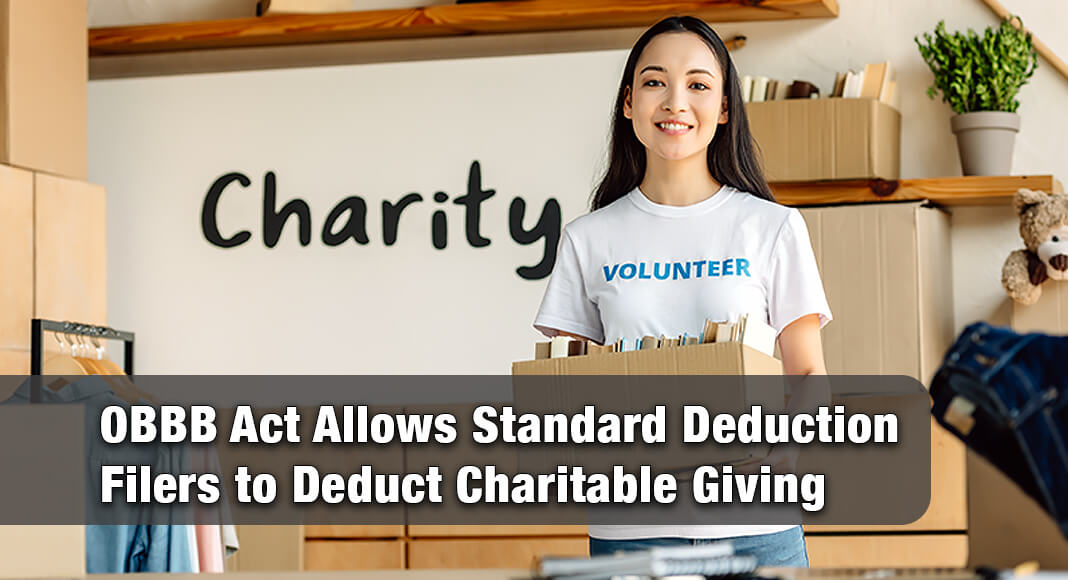
Mega Doctor News
Texas Border Business / Mega Doctor News
The “One, Big, Beautiful Bill Act” (OBBB), signed into law on July 4, 2025, creates a new opportunity for taxpayers who do not itemize deductions to receive a tax benefit for charitable giving still. According to the legislation, “effective for years after 2025, in addition to the standard deduction, non-itemizers can deduct up to $1,000 (single) or $2,000 (filing jointly) for contributions to qualified organizations.”
Under the current tax system, taxpayers have two options when filing: they can either take the standard deduction or itemize their deductions. The standard deduction is a fixed amount that reduces taxable income and is claimed by the majority of households. Itemizing requires listing individual deductible expenses such as mortgage interest, state and local taxes, and charitable contributions. Traditionally, only those who itemize have been able to deduct charitable donations.
The OBBB Act changes this by offering a partial deduction to taxpayers who claim the standard deduction. For the first time in many years, non-itemizers will be allowed to deduct a portion of their charitable contributions. The law sets the amounts at $1,000 for single filers and $2,000 for married couples filing jointly. Although these amounts are smaller than what itemizers can potentially deduct, they represent new tax relief for millions of Americans who otherwise received no benefit for their charitable giving.
Charitable contributions must be made to qualified organizations, such as registered nonprofits, religious institutions, or educational charities, in order to count. Casual gifts to individuals or political contributions are not eligible. The goal, according to the legislation, is to provide “significant new relief measures” that encourage giving while making tax benefits more widely accessible.
This provision is part of a broader set of changes in the OBBB Act that affect individual taxpayers. For example, the law also temporarily increases the State and Local Tax deduction cap, often called the SALT deduction, from $10,000 to $40,000 between 2025 and 2029 before returning to $10,000 in 2030. The SALT deduction allows taxpayers who itemize to subtract certain state and local taxes—such as property taxes, income taxes, or sales taxes—from their federal taxable income. It exists to prevent what is often called “double taxation,” or taxing money that has already been taxed at the state or local level.
By linking these provisions, Congress has broadened tax relief in multiple ways. Itemizers may see significant benefits from the SALT changes, while non-itemizers now gain access to a charitable deduction that was previously unavailable to them. For many households that prefer the simplicity of the standard deduction, the ability to deduct $1,000 or $2,000 for charitable giving may provide both financial savings and an incentive to donate.
While modest compared to the full value of itemized deductions, this new allowance reflects a significant shift. It extends tax advantages for charitable giving to a much wider share of the population. As the law explains, beginning after 2025, the federal tax code will for the first time in years recognize contributions from non-itemizers, giving more Americans a reason to support organizations in their communities.
See related stories:









